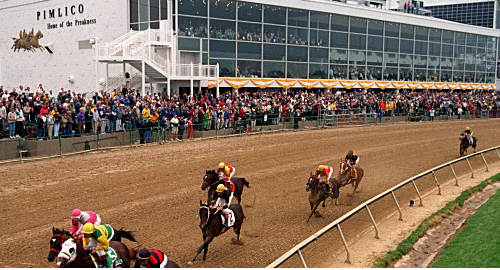 Maryland’s casinos started autumn off on the wrong foot, with Horseshoe Casino Baltimore once again dragging down the overall numbers.
Maryland’s casinos started autumn off on the wrong foot, with Horseshoe Casino Baltimore once again dragging down the overall numbers.
Figures released Monday by the Maryland Lottery and Gaming regulatory body show the state’s six casino operators generated combined gaming revenue of $142.2m in September, a 1.1% decline from the same month last year and more than $12m below August 2019’s total, although that was the fourth-best revenue month in the state’s casino history.
September’s slots revenue was essentially flat year-on-year at $93.5m while table game revenue was down around $1.5m to $48.7m. For the calendar year-to-date, slots revenue is up 4.5% to $859.1m while tables are down 3.1% to $464.1m.
Only two casinos were in positive revenue territory in September, led (as usual) by MGM Resorts’ National Harbor venue, which reported revenue up 6% to $57.7m thanks to gains in both slots and tables. The month’s only other net gainer was Rocky Gap Casino Resort, whose revenue rose 3.2% to $4.8m, although that was the smallest total of the six.
Former state chart-topper Live! Casino & Hotel saw its revenue dip 5.1% to $47.7m, while Caesars Entertainment’s Horseshoe Casino Baltimore earned $18.56m, the month’s biggest percentage decline (-10.1%), although its September total was $350k higher than its record low showing in August.
Churchill Downs Inc’s Ocean Downs Casino was basically flat in September at just under $7.5m, while Hollywood Casino Perryville reported a 4.7% decline to just under $6m.
The government’s share of September’s gaming revenue came to $59.2m, more of which may end up funding the state’s beleaguered horseracing industry. The Stronach Group recently worked out a deal with Baltimore city officials on a $375m plan to keep the Preakness Stakes at Pimlico, the company’s aging racetrack in Baltimore.
Stronach had vowed to shift the Preakness to its other Maryland track, Laurel Park, which is newer but also in dire need of a facelift. Instead, Stronach worked out a deal in which it would receive the funding necessary to upgrade both courses – Pimlico would get a new track, clubhouse and community events center – in exchange for Stronach transferring Pimlico’s land ownership to the city.
The deal requires the approval of state legislators, who will need to decide whether to issue $348m worth of new bonds and to use casino gaming revenue to extend the subsidy the state’s perpetually poor racing industry already receives from gaming.